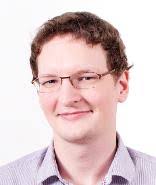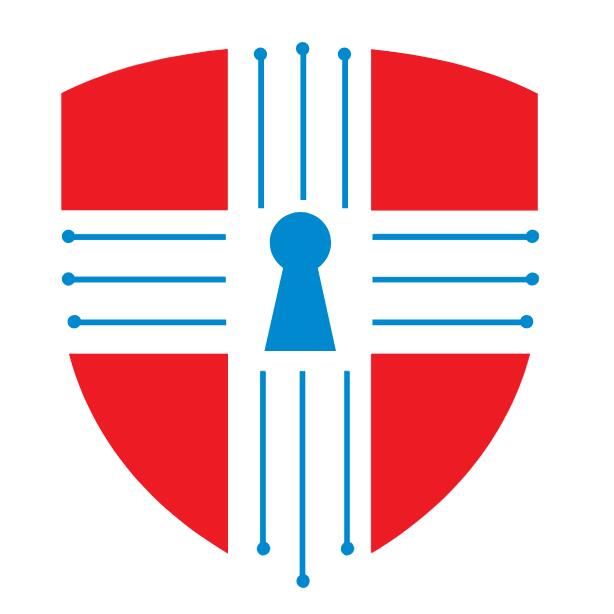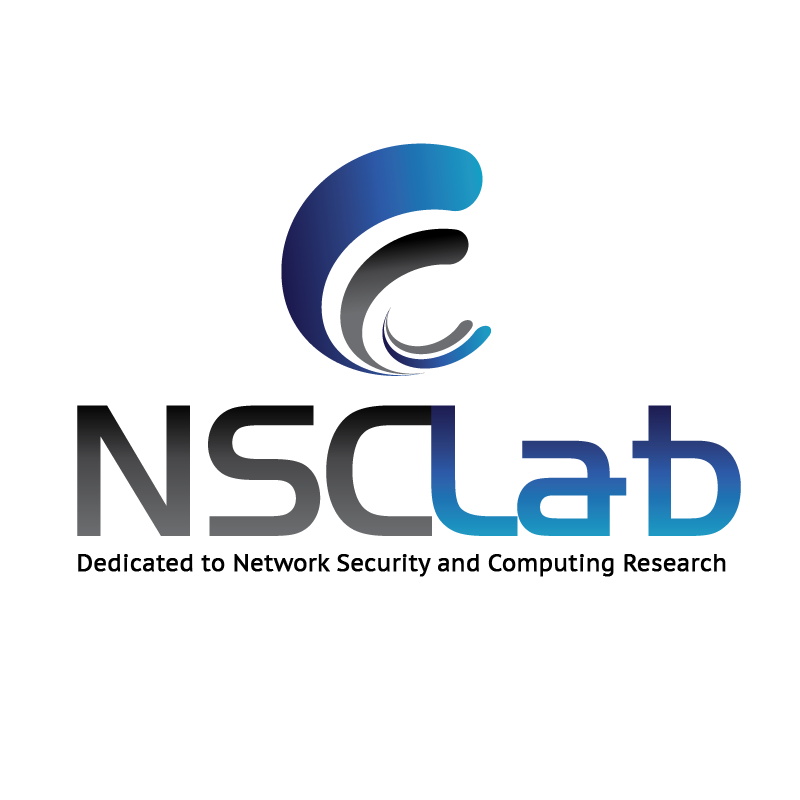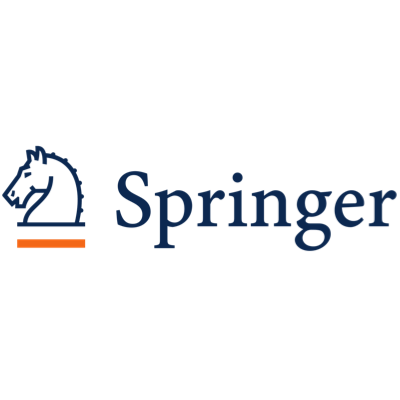CSS 2021
13th International Symposium on Cyberspace Safety and Security
Copenhagen, Denmark (Online)
| 9-11 November 2021
Keynote Speakers
Note: The order of speakers is sorted according to the alphabetical order of surname.

Professor Zhe Liu
Affiliation: Nanjing University of Aeronautics and Astronautics, China
Title: Em-Curve25519: Faster and Smaller
Abstract
Public Key Cryptography (PKC), especially Elliptic Curve Cryptography (ECC), is one of the core crypto algorithms to protect data security and privacy. However, IoT devices are resource limited in term of computation and memory. In this talk, we will present sereval techniques to optimize the performance and space of the new elliptic curve Curve25519 algorithm on embedded devices.
Bio
Zhe Liu a professor in College of Computer Science and Technology, Nanjing University of Aeronautics and Astronautics (NUAA), China. Before joining NUAA, he was a researcher in SnT, University of Luxembourg, Luxembourg. He received his Ph.D degree in Laboratory of Algorithmics, Cryptology and Security (LACS), University of Luxembourg, Luxembourg in 2015. He has won many highly competitive awards including the prestigious FNR Awards 2016 - Outstanding PhD Thesis Award, the ACM China SIGSAC Rising Star Award in 2017, the Alibaba DAMO Academy Young Fellow in 2019 and MIT Technology Review China Innovators 35 Under 35 in 2020. His research interests include computer arithmetic and information security. He has co-authored more than 100 research papers in prestigious journals and conferences including: IEEE S&P, ACM CCS, CHES, IEEE TDSC and IEEE TIFS.

A/Professor Rongxing Lu
Affiliation: University of New Brunswick, Canada
Title: Achieving Efficient and Privacy-Preserving Dynamic Skyline Query in Online Medical Diagnosis
Abstract
Wireless body area network (WBAN) and big data techniques indubitably enable the online medical diagnosis system to be more practical. In the system, to make a more accurate diagnosis, doctors wish to obtain some archived medical data records, which are similar to the sensed patient data, to learn from the prior diagnoses. As a practically useful similarity search, the dynamic skyline query can provide doctors with similar data records having all possible relative weights of attributes. Driven by the powerful cloud, the data owner often outsources encrypted data and the corresponding services, e.g., dynamic skyline query services here, to a third-party cloud. As a result, it is required to perform the dynamic skyline query over encrypted data. However, existing schemes are either insecure or inefficient. To address the issue, in this work, we propose an efficient and privacy-preserving dynamic skyline query scheme and use it in an online medical diagnosis system. Specifically, based on symmetric homomorphic encryption (SHE), we present a set of efficient and secure protocols to achieve various operations, such as less than comparison, equality test, and dominance determination, without leaking any sensitive information to the cloud. With these secure protocols, we carefully design our dynamic skyline query scheme to attain full security and high efficiency at the same time. Detailed security analysis shows that our proposed scheme is indeed privacy-preserving. With extensive experimental evaluations, we show that our proposed scheme outperforms the alternative scheme by two orders of magnitude in the computational cost and at least 8.1x in the communication cost.
Bio
Rongxing Lu is a University Research Scholar, an associate professor at the Faculty of Computer Science (FCS), University of New Brunswick (UNB), Canada. Before that, he worked as an assistant professor at the School of Electrical and Electronic Engineering, Nanyang Technological University (NTU), Singapore from April 2013 to August 2016. Rongxing Lu worked as a Postdoctoral Fellow at the University of Waterloo from May 2012 to April 2013. He was awarded the most prestigious "Governor General's Gold Medal", when he received his PhD degree from the Department of Electrical & Computer Engineering, University of Waterloo, Canada, in 2012; and won the 8th IEEE Communications Society (ComSoc) Asia Pacific (AP) Outstanding Young Researcher Award, in 2013. Dr. Lu is an IEEE Fellow. His research interests include applied cryptography, privacy enhancing technologies, and IoT-Big Data security and privacy. He has published extensively in his areas of expertise (with citation 24,400+ and H-index 78 from Google Scholar as of October 2021), and was the recipient of 9 best (student) paper awards from some reputable journals and conferences. Currently, Dr. Lu serves as the Vice-Chair (Conferences) of IEEE ComSoc CIS-TC (Communications and Information Security Technical Committee), and the founding Co-chair of IEEE TEMS Blockchain and Distributed Ledgers Technologies Technical Committee (BDLT-TC). Dr. Lu is the Winner of 2016-17 Excellence in Teaching Award, FCS, UNB.

Professor Vincenzo Piuri
Affiliation: Universita degli Studi di Milano, Italy
Title: Artificial Intelligence for Biometric Technologies and Systems
Abstract
Biometrics concerns the study of automated methods for identifying an individual by measuring one or more physical or behavioral features of him. Certain physical human features or behaviors are characteristics that are specific and can be uniquely associated to one person. Retinas, iris, DNA, fingerprint, palm print, or pattern of finger lengths are typical physical features that are specific to individuals. Also the voice print, gait, or handwriting can be used to this purpose. Nowadays biometrics is rapidly evolving. This science is getting more and more accurate in identifying persons and behaviors. Consequently, these technologies become more and more attractive and effective in critical applications, such as to create safe personal IDs, to control the access to personal information or physical areas, to recognize terrorists or criminals, to study the movements of people, and to monitor the human behavior. The use of biometrics in the real life often requires very complex signal and image processing and scene analysis, for example encompassing biometric feature extraction and identification, individual tracking, face tracking, eye tracking, liveness/anti-spoofing tests, and facial expression recognition. Artificial intelligence techniques (including neural networks, fuzzy logic, evolutionary computing, and multi-agent systems) have been proved to be useful and effective in addressing this kind of data processing, especially when it is difficult to identify an algorithm while sufficiently descriptive examples are available, or when fuzzy descriptions are more natural to capture the essence of the problem, or when complex non-linear optimization is needed, or when multiple agents cooperate in solving the application problem. This talk will review the domain of biometrics, its applications in various domains and the relevance of artificial intelligence, in particular neural networks and deep learning) to effectively solve various problems in these applications.
Bio
Vincenzo Piuri has received his Ph.D. in computer engineering at Polytechnic of Milan, Italy (1989). He is Full Professor in computer engineering at the University of Milan, Italy (since 2000). He has been Associate Professor at Polytechnic of Milan, Italy and Visiting Professor at the University of Texas at Austin, USA, and visiting researcher at George Mason University, USA. His main research interests are: artificial intelligence, computational intelligence, intelligent systems, machine learning, pattern analysis and recognition, signal and image processing, biometrics, intelligent measurement systems, industrial applications, digital processing architectures, fault tolerance, cloud computing infrastructures, and internet-of-things. Original results have been published in 400+ papers in international journals, proceedings of international conferences, books, and book chapters. He is Fellow of the IEEE, Distinguished Scientist of ACM, and Senior Member of INNS. He is President of the IEEE Systems Council (2020-21) and IEEE Region 8 Director-elect (2021-22), and has been IEEE Vice President for Technical Activities (2015), IEEE Director, President of the IEEE Computational Intelligence Society, Vice President for Education of the IEEE Biometrics Council, Vice President for Publications of the IEEE Instrumentation and Measurement Society and the IEEE Systems Council, and Vice President for Membership of the IEEE Computational Intelligence Society. He has been Editor-in-Chief of the IEEE Systems Journal (2013-19). He is Associate Editor of the IEEE Transactions on Cloud Computing and has been Associate Editor of the IEEE Transactions on Computers, the IEEE Transactions on Neural Networks, the IEEE Transactions on Instrumentation and Measurement, and IEEE Access.

Dr Nils Ole Tippenhauer
Affiliation: CISPA Helmholtz Center for Information Security, Germany
Title: The Quest for Industrial Host Security
Abstract
Industrial Control System (ICS) host devices such as Programable Logic Controllers (PLCs) are widely using proprietary realtime operating systems with little or no support for Cybersecurity features. Even security solutions widely used in mainstream operating systems since 20+ years are missing, such as process isolation, root of trust, hardware support for cryptographic functions. In this talk, we discuss reasons for this situation, and how to realistically introduce basic security features into such an environment. We provide an overview on recent offensive and defensive work for embedded realtime operating systems, their constraints on opportunities, and propose complementary approaches focusing on realtime monitoring of legacy host systems.
Bio
Nils is a faculty at the CISPA Helmholtz Center for Information Security, heading the Secure Cyber-Physical Systems research group. Until 2018, Nils was an Assistant Professor at the Singapore University of Technology and Design ( SUTD). He earned his Dr. Sc. in Computer Science from ETH Zurich (Switzerland) in 2012, as part of the System Security group led by Prof. Srdjan Capkun. Nils is interested in information security aspects of practical systems. In particular, he is currently working on security of industrial control systems and the Industrial Internet of Things, for applications such as public infrastructure (e.g., public water systems and power grids). At SUTD, Nils was involved in the construction and operation of several of our practical testbeds in those areas (SWaT, WADI, EPIC).

Professor Laurence T. Yang
Affiliation: Hainan University / St. Francis Xavier University, Canada
Title: Cyber-Physical-Social Systems: Design, Analytics, Security and Privacy
Abstract
The booming growth and rapid development in embedded systems, wireless communications, sensing techniques and emerging support for cloud computing and social networks have enabled researchers and practitioners to create a wide variety of Cyber-Physical-Social Systems (CPSS) that reason intelligently, act autonomously, and respond to the users' needs in a context and situation-aware manner. The CPSS are the integration of computation, communication and control with the physical world, human knowledge and sociocultural elements. It is a novel emerging computing paradigm and has attracted wide concerns from both industry and academia in recent years. Currently, CPSS are still in their infancy stage. Our first ongoing research is to study effective and efficient approaches for CPSS modeling and general system design automation methods, as well as methods analyzing and/or improving their power and energy, security, trust and reliability features. Once the CPSS have been designed, they collect massive data (Volume) from the physical world by various physical perception devices (Variety) in structured/semi-structured/unstructured format and respond the users' requirements immediately (Velocity) and provide the proactive services (Veracity) for them in physical space or social space. These collected big data are normally high dimensional, redundant and noisy, and many beyond the processing capacity of the computer systems. Our second ongoing research is focused on the Big Data-as-a-Service framework, which includes data representation, dimensionality reduction, incremental and distributed processing, security and privacy, deep learning, clustering, prediction and proactive services, aiming at representing and processing big data generated from CPSS, providing more valued smart services for human and refining the previously designed CPSS. This talk will present our latest research on these two directions. Corresponding case studies in some applications such as smart traffics will be shown to demonstrate the feasibility and flexibility of the proposed system design methodology and analytic framework.
Bio
Laurence T. Yang got his BE in Computer Science and Technology and BSc in Applied Physics both from Tsinghua University, China and Ph.D in Computer Science from University of Victoria, Canada. He is a professor in Hainan University, China as well as a professor and W.F. James Research Chair at St. Francis Xavier University, Canada. His research includes Cyber-Physical-Social System Design and Data Analytics. He has published 250+ papers in the above areas on top IEEE/ACM Transactions/Journals with total citations of 27893 and H-index of 82 including 7 and 28 papers as top 0.1% and top 1% highly-cited ESI papers, respectively. He has been involved actively act as a steering chair for 10+ IEEE international conferences. He is the chair of IEEE CS Technical Committee of Scalable Computing (2008-2011, 2018-), the co-chair of IEEE SMC Technical Committee on Cybermatics (2016-), the co-chair of IEEE SC Hype-Intelligence Technical Committee (2021-), and the chair IEEE CIS Cyber-Physical-Social Systems Task Force (2019-) and the vice-chair of IEEE CIS Technical Committee on Smart World (2016-2019). In addition, he is serving as an editor for many international journals and is an author/co-author or an editor/co-editor of more than 25 books from well-known publishers, invited to give around 50 keynote talks at various international conferences and symposia. His recent honors and awards include the member of Academia Europaea, the Academy of Europe (2021), the John B. Stirling Medal (2021) from Engineering Institute of Canada, IEEE Sensor Council Technical Achievement Award (2020), IEEE Canada C. C. Gotlieb Computer Medal (2020), ACM Distinguished Scientist (2020), Clarivate Analytics (Web of Science Group) Highly Cited Researcher (2019, 2020), Fellow of Institution of Engineering and Technology (2020), Fellow of Institute of Electrical and Electronics Engineers (2020), IEEE TCCPS Most Influential Paper Award on Cyber-Physical Systems (2020), IEEE SCSTC Most Influential Paper Award on Smart Computing (2019), IEEE TCBD Best Journal Paper Award on Big Data (2019), Fellow of Engineering Institute of Canada (2019), AMiner Most Influential Scholar Award for Internet of Things (2018), IEEE TCCPS Distinguished Leadership Award on Cyber-Physical Systems (2018), IEEE SCSTC Life-Career Achievement Award on Smart Computing (2018), Fellow of Canadian Academy of Engineering (2017), IEEE System Journal Best Paper Award (2017), IEEE TCSC Award for Excellence in Scalable Computing (2017), Elsevier JCSS Elsevier JCSS Journal Most Cited Paper Award (2017) and the PROSE Award on Engineering and Technology (2010).

Professor Jianying Zhou
Affiliation: Singapore University of Technology and Design, Singapore
Title: What do i Trust? Securing Critical Infrastructure in Cyber War
Abstract
Critical infrastructure becomes a strategic target in the midst of a cyber war. Governments are investing significantly in response to the risks and challenges while researchers and vendors are aggressively developing and marketing new technologies aimed at protecting critical infrastructure. In this talk, I will briefly describe the framework and features of a cyber-physical system (CPS) which serves as the core to provide critical services in different industrial domains. Then I will discuss the challenges we face and the approaches we can take to defend against cyber attacks. I will present a few novel technologies developed in iTrust for preventing and detecting attacks to CPS. I will further introduce the fully operational CPS testbeds in iTrust, and show how the testbeds are used to validate the security technologies so that the owners and operators of critical infrastructure can be confident that the technologies to be deployed will actually protect their systems in the event of a cyber war.
Bio
Jianying Zhou is a professor and co-center director for iTrust at Singapore University of Technology and Design (SUTD). He received PhD in Information Security from Royal Holloway, University of London. His research interests are in applied cryptography and network security, cyber-physical system security, mobile and wireless security. He received ESORICS Best Paper Award in 2015 and ESORICS Outstanding Contribution Award in 2020. He is a co-founder & steering committee co-chair of ACNS. He is also steering committee chair of ACM AsiaCCS, and steering committee member of Asiacrypt.




